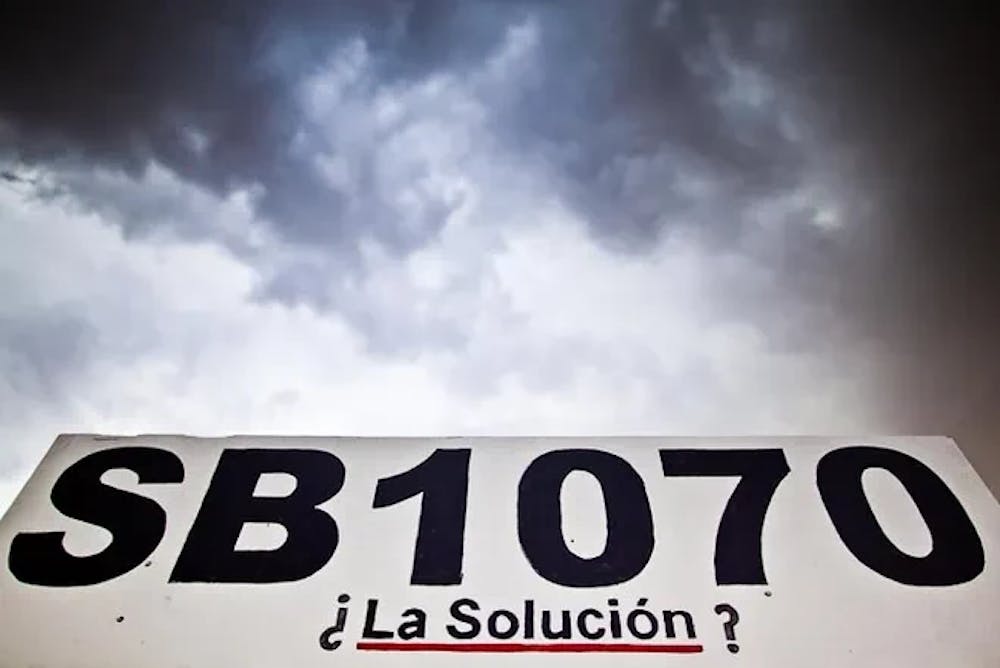Arizona saw the largest drop in its undocumented immigrant population among all US states over the past decade.
According to data released by the Department of Homeland Security's Office of Immigration Statistics, the number of undocumented immigrants within the state of Arizona dropped by roughly 230,000 from 2008 to 2018.
As a result of the population decline, some Arizona organizations want to remind Arizonans of the value that undocumented immigrants can bring to communities. This includes Aliento, a Phoenix-based organization providing aid and resources to Deferred Action for Childhood Arrivals (DACA) recipients and other immigrants.
Mario Montoya, a Research Analyst and Coalition Consultant at Aliento believes that undocumented immigrants can provide significant economic benefits in addition to the cultural impact.”
“We have to realize that a large number of the undocumented immigrants residing in our state, as many as 70%, have been here for more than ten years,” Montoya said. “These undocumented individuals have really integrated themselves into part of our community. They’re part of our community and have built their homes here.”
Montoya said immigrants, even if undocumented, have a ‘great impact’ on the state’s workforce.
“A lot of them pay their taxes, they own homes, they have children as well,” Montoya said. “I think they’re an important part that brings a lot of diversity to the area.”
Despite being active participants in the American economy, many undocumented immigrants and their families don’t feel welcome in the state to the extent they used to. Sonya Molina, a student at the University of Arizona, is a descendant of undocumented immigrants and said that certain laws in Arizona make life difficult for people like her.
“There are a lot of ways you’re made to feel like an outsider,” Molina said. “I know that Arizona has a lot of strict restrictions on illegal immigrants, and I think there are a lot of people that don’t want to be somewhere they don’t feel like they’re wanted.”
One factor that made some families feel unwanted was the passage of Senate Bill 1070. SB 1070, known as the Support Our Law Enforcement and Safe Neighborhoods Act, was signed into law in April 2010 by then-governor Janice Brewer.
Now, more than a decade later, immigration experts are raising concerns that SB 1070 may have other unintended impacts on Arizona’s undocumented immigrant population. Cesar Escalante, an Agricultural and Applied Economics professor at the University of Georgia, said SB 1070 included questionable provisions that could lead to racial profiling.
“Arizona has one of the strictest immigration laws. (SB 1070) had some provisions that were even questioned by the Department of Justice,” Escalante said. “It has even become known as the ‘Show Me Your Papers’ law because it allows law enforcement to ask for immigration documents from people they suspect are here illegally.”
Escalante is the co-author of a study that found that SB 1070 and other bills like it have a negative impact even on individuals who are documented.
“If the majority of the ones who have been caught (as a result of SB 1070) have been Hispanics, then the general notion is that they are all Hispanic,” Escalante said. “As a result, it doesn’t matter if a Hispanic person is here legally. They will already be branded as undocumented.”
Escalante’s study also found that the difficulties with racial profiling adversely affect adolescents.
“In schools when we focused on Hispanic adolescents, they actually had difficulty functioning in that social environment because their peers would look at them and they would already assume that they are undocumented when in fact that may not be the case,” Escalante said.
Despite Arizona experiencing a significant decrease in its undocumented immigrant population over the past decade, with ongoing concerns related to the impact of Senate Bill 1070, organizations like Aliento focus on the positive contributions of immigrants and continue to address the challenge of balancing the priorities of enforcing policies and fostering inclusivity in the state.

